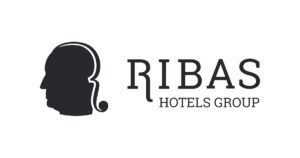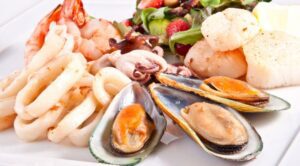
In January 2022, PJSC Ukrnafta increased oil and condensate production by 5.6% (by 6,900 tonnes) compared to the same period in 2021, to 130,500 tonnes, the company’s press service reported on Monday.
According to it, gas production increased by 3.6% (by 3.3 million cubic meters), to 94.5 million cubic meters.
In addition, production of liquefied gas in January 2022 at the company’s plants increased by 10% (by 990 tonnes) compared to January last year, to 10,870 tonnes.
Ukrnafta clarified that the increase in production is associated with efficient operation of the existing well stock and a reduction in equipment downtime. In addition, commissioned oil well No. 103 at the Verkhnomaslovetske field (Lviv region) had a positive effect on production activities.
“Ukrnafta is making efforts to increase hydrocarbon production, particularly of natural gas. This is an important task both in terms of supplying the domestic market with natural gas during high seasonal demand and for strengthening the country’s energy independence in the long term,” the company said.
Ukrnafta owns 85 special permits for production of hydrocarbons, and has 1,809 oil and 153 gas wells on its balance sheet. The company owns 537 filling stations.
NJSC Naftogaz Ukrainy owns 50% plus 1 share of the largest oil producing company in the country, and a group of companies associated with the former shareholders of PrivatBank owns about 42% of the shares.

The German Foreign Ministry issued an updated information bulletin on Saturday, which urges citizens not to visit Ukraine unnecessarily.
“It is recommended to refrain from trips to Ukraine. German nationals are urgently requested to leave the country now,” the document says.
It is noted that “tension between Russia and Ukraine” due to the massive presence of Russian military forces near the Ukrainian border “is growing again.”
“A military confrontation is possible at any time,” the bulletin says.

The hotel operator Ribas Hotels Group (Odesa) has preliminary agreements with developers to expand the network of WOL apart-hotels by opening new facilities in Lviv, Kyiv, Kharkiv and Odesa in the next 2-3 years.
As Artur Lupashko, founder of Ribas Hotels Group, told Interfax-Ukraine, according to preliminary agreements with developers, WOL and WOL Black apart-hotels with a total area of more than 20,000 square meters will be implemented in Lviv.
“We also have preliminary agreements to launch WOL apart-hotels in Kyiv and Kharkiv in the next two or three years,” he said.
In addition, it is planned to carry out repair work in the Odesa complex of Aura apartments with the aim of launching an apart-hotel in 2023.
“In addition, two more projects in Kyiv, two projects in Lviv, projects in Uzhgorod, Poltava and Mykolaiv are at the stage of active negotiations with developers,” Lupashko shared his plans.
Ribas Hotels Group is also partnering with developer Asgard in the Duck’s Lake apartment project in Lviv, work on which will start this year.
KHARKIV, KYIV, LVIV, ODESA, RIBAS HOTELS

Last year, Ukraine increased the import of fish, crustaceans and shellfish by 28.6% compared to 2020, to $874 million, according to the website of the Institute for Agrarian Economics National Research Center on Monday.
According to the institute, Norway retained its status as the largest supplier of these products with a share of 35.2% ($307.6 million) of total imports. Norway has been holding a leading position in the import of fish and seafood to Ukraine for 15 years.
Other major suppliers of these products were Iceland with a market share of 13.2% ($113.6 million), the United States – 7.7% ($67.3), Canada – 5.6% ($49 million), Great Britain – 4.7% ($41.1 million) and Spain – 4.4% ($38.4 million). These six countries combined accounted for 71% of fish and seafood imports in 2021.
“Fish and seafood are traditionally in the top three main types of agricultural food imported to Ukraine. In 2021, the share of products of this group in the structure of foreign supplies of agricultural raw materials to Ukraine turned out to be the largest and amounted to about 11%,” expert Bohdan Dukhnitsky said.
The organization clarified that Ukraine buys mainly frozen, as well as fresh and chilled fish, fish fillets and crustaceans.

Ookla (the United States), the developer of the Speedtest service for determining the speed of mobile Internet connection, recognized Kyivstar as a mobile operator with the highest average mobile Internet speed and the largest network coverage in Ukraine in the second half of 2021, according to an Ookla Speedtest report published on the Speedtest website.
According to it, in Ukraine, in July-December 2021, the company conducted more than 1.113 million tests, in which subscribers of all mobile operators participated. In particular, the total number of tests on the Kyivstar network amounted to 532,488 with an average download speed (download) of 31.33 Mbps and data transmission (upload) of 14.59 Mbps.
Some 283,798 tests were carried out on the Vodafone Ukraine network with an average download speed of 29.18 Mbps, transmission – 11.69 Mbps; on the lifecell network – 276,225 tests with an average download speed of 12.36 Mbps and an upload speed of 6.26 Mbps.
According to Ookla, Kyivstar’s Speed Score was 41.25 (34.65 in the first half of 2021), Vodafone Ukraine – 38.60 (32.05), and lifecell – 16.05 (15.24). This indicator includes data on the speed of Download and Upload data, regardless of the standard.
In general, in Ukraine, the application was launched on 293,180 unique devices, of which the top five in terms of popularity includes iPhone 11 (9,325 tests), iPhone 7 (7,922 tests), Redmi Note 8 Pro (7,537 tests), iPhone Xr (6,999 tests) and iPhone Pro Max 5G (6,741 tests).
In addition, as noted in the Ookla report, Kyivstar received the highest number of points when testing coverage in Speedtest – 623 (versus 595 in the first half of 2021). This assessment is formed on an analysis of the number of locations where operators provide their services and the quality of mobile communications in each of them. Vodafone Ukraine got 488 (versus 493 points), and lifecell – 338 (versus 321).
At the same time, compared to the results of the first half of 2021, the results of testing the networks of Ukrainian mobile operators deteriorated slightly. So, in January-June 2021, on the Kyivstar network, an average download speed was 33.2 Mbps, and an upload speed – 15.7 Mbps. On the Vodafone Ukraine network – 30.37 Mbps and 13.73 Mbps; on the lifecell network – 15.72 Mbps and 8.15 Mbps respectively.
At the same time, over the past year, Ukraine has significantly improved its position in the Speedtest Global Index, Ookla’s global rating of mobile Internet speed, climbing 15 positions at once, from 77th place in January 2021 to 62nd position in January 2022.
The increase in the average speed of mobile Internet in Ukraine is associated with an increase in the number of 4G users, according to Kyivstar.
Ookla is a leader in testing and analyzing fixed and mobile internet speeds. Every day, thanks to the application, users around the world perform more than 10 million tests. At the end of 2018 and 2019, Kyivstar has already been marked by the company as an operator with the highest average mobile Internet speed in Ukraine.

Silpo, one of the largest Ukrainian supermarket chains, has opened a Beermaster Brewery craft brewery with a capacity of up to 130,000 liters per year in the Respublika Park shopping center in Kyiv.
As stated in a press release from the company on Friday, Beermaster Brewery Pub has opened as part of the brewery, which will regularly host presentations of freshly brewed beer and new varieties, and tours of the brewery itself.
According to the announcement, the new brewery will brew a wide range of beers, from classic wheat ales, milk stouts and pilsners to experimental beers infused with chocolate, spices, fruits and vegetables.
The team of brewers is led by Chef Viktor Vashchuk, who has over 20 years of experience in the industry. A number of collaborations with renowned brewers from the United States, Belgium and the Netherlands are planned for 2022, the company said.
The produced craft beer will also be sold in the Silpo supermarket chain.
The company said that the start of its own production of beer is a logical and consistent step for the chain, as it has been actively expanding the range of beer from around the world for more than ten years, in particular, Ukrainian and foreign craft.
The release does not specify the amount of investment in the project.
The Silpo network includes 325 supermarkets in 60 cities of Ukraine and 4 Le Silpo markets in Kyiv, Dnipro, Kharkiv and Odesa.
Silpo is part of the Fozzy Group, which also develops the restaurant business. It currently includes six establishments.